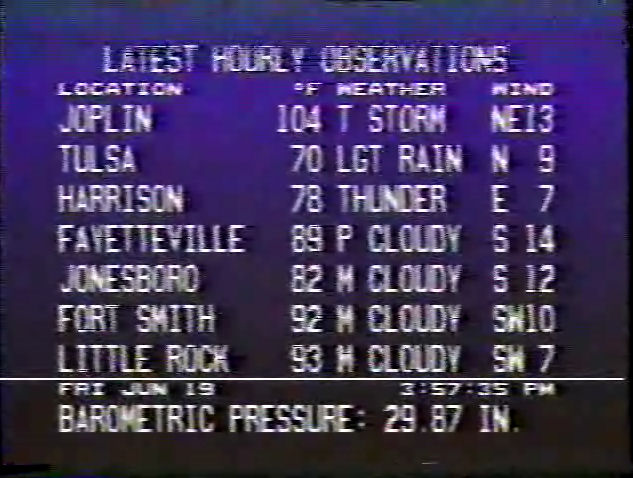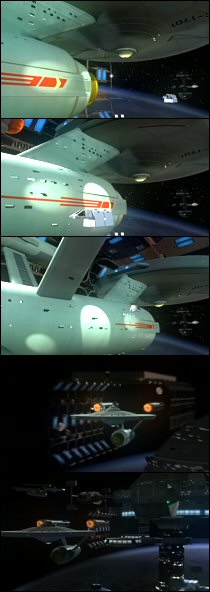 Maybe it’s the heat getting to me, or maybe it’s me putting into database format all those episode guide synopses from back in the day when I was completely and totally enthralled with Star Trek, but so help me, I’m missing my final frontier fix here lately.
Maybe it’s the heat getting to me, or maybe it’s me putting into database format all those episode guide synopses from back in the day when I was completely and totally enthralled with Star Trek, but so help me, I’m missing my final frontier fix here lately.
With that in mind, I finally broke down, made VCDs of all the New Voyages stuff I’d downloaded, and sat down with my wife to watch some of it recently. Now, if you know that the word “fiddygibber” means, you know that I’m 100% behind the folks who are turning their talents toward telling new tales from the Trek universe. The results…well now, those are mixed. 😆 I’ve been downloading some Hidden Frontiers episodes to check out when I get the chance, and I’m eagerly awaiting the U.S.S. Intrepid fan film, a Scottish-made project, because the pre-release stuff on their site looks cool and hey, I’d just like to see a Star Trek project filled with Scots accents. I didn’t realize, until checking out Wikipedia tonight, that there’s also an active Trek audio drama scene – for the folks who don’t have the budget, the materials, or (and let’s be frank now, because I’m definitely in this category) the physique to make fan films. So there’s something else for me to check out.
There’s something audacious about an amateur project like that, and there’s something perhaps even more daring about stepping up to the plate and taking a swing in someone else’s ballpark, to completely mangle an baseball metaphor when I’m trying to talk about intellectual property. There’s also something called taking it too far, and I’m sure in my explorations of the fan-made media I’ll probably run into that too. (And I’ll know it when I see it, because my own fan-made spoofs from years and years ago crossed that line – believe me, I’ve talked to Robert many times about somehow slipping Jump Cut City onto the web, but the reality of it is…we just can’t do it. We couldn’t do it without getting sued into the 23rd century. Which is why you may not, in fact, know what a fiddygibber is. Well, that, and big wodges of it are just embarrassingly bad in an unintentionally-funny, Star Wars Kid kind of way – we were both 20ish at the time. And acting every bit of 13.)
Seeing folks do this stuff and do it well makes me ache to be among the people putting it together again. (If you want to see what I mean about doing it well, visit newvoyages.com and download Center Seat – it’s a short, self-contained story with original effects and music, and by God, if that shot of the Enterprise leaving spacedock doesn’t make you catch your breath and bring tears to your eyes, you must have pointed ears. And the acting ain’t bad either.) Now, I don’t think anyone needs to see me squeeze my bulbous frame into a Starfleet uniform – I look in the mirror from time to time, and I certainly know that’s not anything I need to see. But it might be fun to be a voice on a speaker somewhere.
So here’s my challenge to anyone working on a fan video or audio project: throw me in there somewhere. Seriously. Just an off-screen voice, even if it’s just one or two lines. I think it’d be fun, between now and whenever Paramount puts the next Star Trek movie on the screen (and hey, if someone wants me to do a voice for that, I can probably find a gap in my schedule), to be a part of any Star Trek fan media project coming out in that time that’ll have me. You guys know where to find me (hint: take my first name, put one of those swirly things after it, and then chase it down with thelogbook.com, and that’s a good start).
Because there was a time when every new Trek project coming down the pike wasn’t on autopilot for lamesville, and a time when, even with two shows on the air every week, you were generally assured of two good episodes a week. I’m sure there are some fan projects that also reside in lamesville, too, and I’ll stumble across them in time – but even if I don’t dig ’em, someone else probably does. So give me a call – all this new Trek ain’t gonna make itself.… Read more
 … Read more
… Read more 
 Maybe it’s the heat getting to me, or maybe it’s me putting into database format all those episode guide synopses from back in the day when I was completely and totally enthralled with Star Trek, but so help me, I’m missing my final frontier fix here lately.
Maybe it’s the heat getting to me, or maybe it’s me putting into database format all those episode guide synopses from back in the day when I was completely and totally enthralled with Star Trek, but so help me, I’m missing my final frontier fix here lately. Ya know, it seems like me and about six other people in the world remember this movie. It was a shot-mostly-on-video HBO production, made in Canada and aired in 1984, depicting a series of live news broadcasts about a series of events leading to the first exchange of nuclear weapons between the United States and the Soviet Union – an exchange taking place in, of all locales, the mouth of the Persian Gulf.
Ya know, it seems like me and about six other people in the world remember this movie. It was a shot-mostly-on-video HBO production, made in Canada and aired in 1984, depicting a series of live news broadcasts about a series of events leading to the first exchange of nuclear weapons between the United States and the Soviet Union – an exchange taking place in, of all locales, the mouth of the Persian Gulf.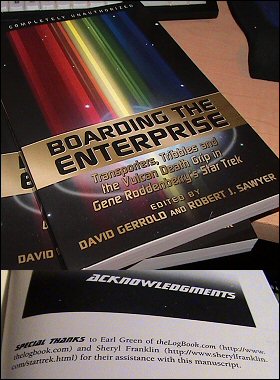
 So, at long last, the BBC is releasing a soundtrack album for the new Doctor Who. Hooray!…kinda. Don’t get me wrong, I’ll certainly buy a copy, and I look forward to listening to it. But in only two seasons (a total of 27 episodes), dear old Murray Gold has achieved the same effect that it took Christopher Franke about four years to accomplish: he composed a lot of music that I thought was brilliant the first couple of times I heard it, and then reused all of these wonderful pieces to the point that it just completely robbed them of a lot of their power.
So, at long last, the BBC is releasing a soundtrack album for the new Doctor Who. Hooray!…kinda. Don’t get me wrong, I’ll certainly buy a copy, and I look forward to listening to it. But in only two seasons (a total of 27 episodes), dear old Murray Gold has achieved the same effect that it took Christopher Franke about four years to accomplish: he composed a lot of music that I thought was brilliant the first couple of times I heard it, and then reused all of these wonderful pieces to the point that it just completely robbed them of a lot of their power.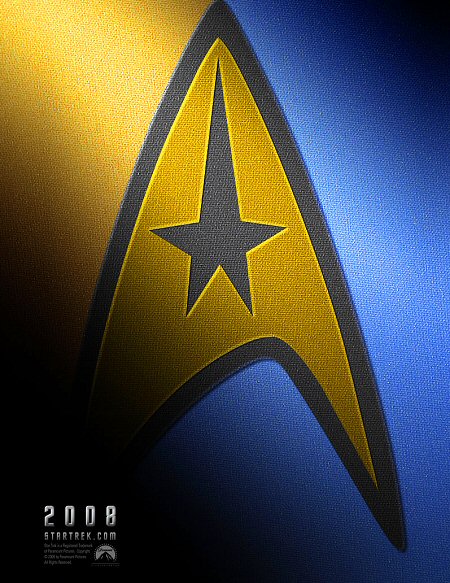
 So…an interesting series of coincidences involving Doctor Who, both on our screens and in our ears, has me putting two and two together. Follow along if you like. …
So…an interesting series of coincidences involving Doctor Who, both on our screens and in our ears, has me putting two and two together. Follow along if you like. … 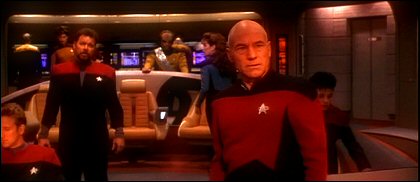 …
… 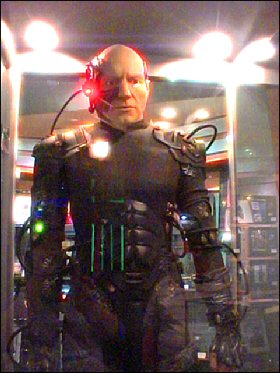 OK, so…no liftoff just yet. We’ll give it another go this afternoon. Still, my previous comments stand.
OK, so…no liftoff just yet. We’ll give it another go this afternoon. Still, my previous comments stand.